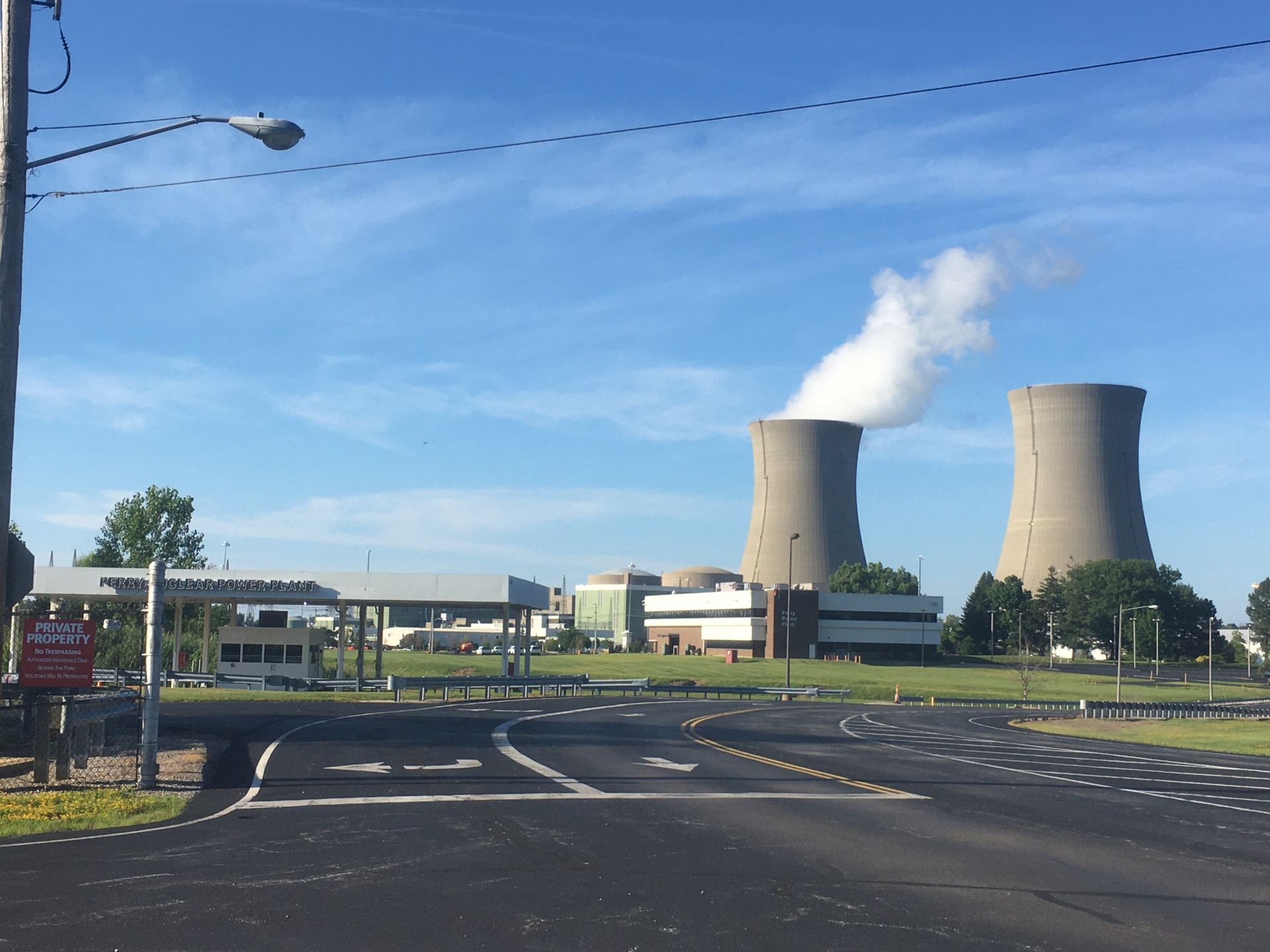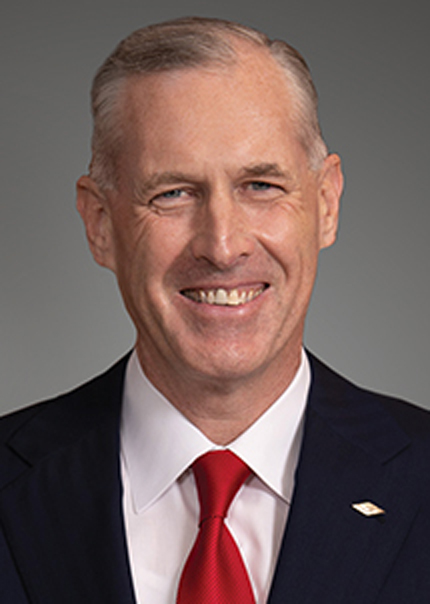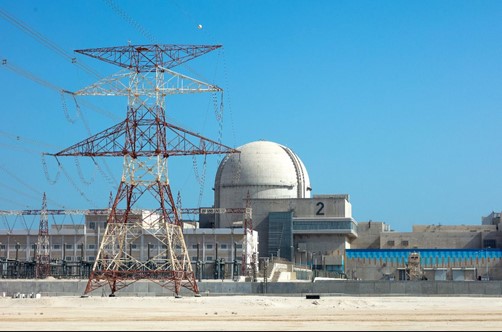Energy Harbor’s Perry nuclear power plant, in Perry, Ohio. The company says its nuclear units are “critical infrastructure required for the U.S. clean energy transition.”
Energy Harbor—owner and operator of the Beaver Valley, Davis-Besse, and Perry nuclear power plants—recently announced its plan to become a carbon-free energy infrastructure and supply firm in 2023. Energy Harbor is based in Akron, Ohio.
The Diablo Canyon nuclear power plant, located near Avila Beach, Calif.
A recent article on a radio station website about an auxiliary feedwater (AFW) pump problem at the Diablo Canyon nuclear power plant led to information exchanges between a reporter, the American Nuclear Society, and nuclear advocates. The incident also involved a tweet by a member of the Union of Concerned Scientists.
The Koeberg nuclear power plant, near Cape Town, South Africa. (Photo: Eskom)
An International Atomic Energy Agency team of experts has completed its review of the long-term operational safety of South Africa’s Koeberg nuclear power plant, which is operated by the public utility Eskom.
The New Safe Confinement structure over the damaged fourth reactor at the Chernobyl nuclear power plant. Photo from 2018.
Ukraine’s nuclear operator, Energoatom, announced yesterday that the Russian military has withdrawn from the Chernobyl plant and surrounding area. “According to the staff of the Chernobyl nuclear power plant, there are now no outsiders on-site,” Energoatom stated in an online post. Russian forces took control of Chernobyl on February 24, day one of the invasion.
In a separate post, the company said that the Russians had formally agreed to return the responsibility for Chernobyl to Ukraine. It shared a scan of a document, with the heading “Act of acceptance and transfer of protection of the Chernobyl nuclear plant,” purportedly signed by a representative of Russia’s National Guard, a representative of Rosatom, Russia’s state atomic energy corporation, and a Chernobyl plant shift manager.
March 30, 2022, 11:55AMANS Nuclear CafeJacopo Buongiorno, Steven Nesbit, Malcolm Grimston, Lake Barrett, Matthew L. Wald, and Andrew Whittaker The six reactors at the Zaporizhzhia nuclear power plant in southeastern Ukraine.
On March 4, Russian forces set fire to an office building at Ukraine’s Zaporizhzhia nuclear power plant, raising fears about reactors being damaged. The attack stirred up memories of the Chernobyl accident in 1986, a reaction that longtime nuclear opponents are taking advantage of to rekindle their cause. However, the reactors operating in Ukraine today are profoundly different from the design used at Chernobyl, and are, by nature, difficult to damage.
Let’s set the record straight and explain the risks of nuclear power plants in war zones.
The Fuqing nuclear power plant. (Image: CNNC)
The Fuqing nuclear plant’s Unit 6, one of two Chinese-designed and -developed Hualong One reactors at the site, has entered commercial operation, China National Nuclear Corporation (CNNC) announced on March 25. The milestone was reached some 14 months after the reactor’s twin, Fuqing-5, became the first Hualong One in the world to enter commercial operation.
Also known as the HPR1000, the Hualong One is a 1,000-MWe Generation III pressurized water reactor that incorporates design elements of CNNC’s ACP1000 and China General Nuclear Power Group’s ACPR1000+.
Data from research firm PitchBook show a spike in nuclear investment. (Graph: Bloomberg)
The trend of big-tech billionaires of Silicon Valley investing in next-generation nuclear energy startup companies continues. In a March 22 article on the Bloomberg website, Lizette Chapman, of the site’s venture capital group, writes that these investors view nuclear power as “a solution to both cutting carbon emissions and weaning the world off now-controversial Russian gas.”
Unit 2 at the UAE’s Barakah nuclear plant. (Photo: ENEC)
Unit 2 at the United Arab Emirates’ Barakah nuclear power plant has entered commercial operation, Emirates Nuclear Energy Corporation (ENEC) announced on March 24. Unit 2 adds an additional 1,400 MW of zero-carbon emission electricity to the UAE’s national grid, bringing the total amount of electricity produced at Barakah to 2,800 MW.
U.S. undersecretary of state for arms control and international security Bonnie Jenkins (left) and Philippine energy undersecretary Gerardo D. Erguiza Jr. (center) sign a memorandum of understanding on nuclear cooperation at the State Department. Looking on (right) is Philippine ambassador to the United States Jose Manuel Romualdez. (Photo: Philippine Embassy, Washington, D.C.)
The United States and the Philippines recently signed a memorandum of understanding on strategic civil nuclear cooperation to help boost the development of the latter’s nuclear energy program.
The Palisades plant near Covert, Mich. (Photo: Entergy)
“Many states have made carbon dioxide–reduction plans with no hope of success. But if they want to meet even a portion of those goals, they must put nuclear power back on the table.” So opined Tim Cavanaugh, senior editor at the Mackinac Center for Public Policy, in an essay published by The Hill on March 23.
Czech prime minister Petr Fiala and ČEZ CEO Daniel Beneš (foreground, third and fourth from left, respectively). (Photo: ČEZ)
A cutaway image of the BWRX-300. (Image: GEH)
Wilmington, N.C.–based GE Hitachi Nuclear Energy has signed a memorandum of understanding with Kärnfull Next—a new company and a wholly owned subsidiary of Swedish firm Kärnfull Future AB—to collaborate on the deployment of GEH’s BWRX-300 small modular reactor in Sweden.
An aerial view of Finland’s Loviisa plant.
Finnish utility Fortum Power and Heat Oy has submitted an application to Finland’s Ministry of Economic Affairs and Employment to operate the two reactors at the Loviisa nuclear power plant through 2050. The current operating licenses for Loviisa-1 and -2 expire in 2027 and 2030, respectively.
The Doel nuclear power plant in Belgium.
In a move motivated by Russia’s invasion of Ukraine and the sky-high energy prices hitting Europe as a result, the Belgian government last Friday announced its intention to extend the operational life of two of its nuclear power reactors, Doel-4 and Tihange-3, through 2035.
,_July_2020.jpg)


 The Nuclear Regulatory Commission yesterday unveiled its
The Nuclear Regulatory Commission yesterday unveiled its 




 The governments of four Canadian provinces—Ontario, New Brunswick, Saskatchewan, and Alberta—have published a plan outlining the path forward for the advancement of small modular reactors, which could provide the nation with safe, reliable, and zero-emissions energy and create new export opportunities.
The governments of four Canadian provinces—Ontario, New Brunswick, Saskatchewan, and Alberta—have published a plan outlining the path forward for the advancement of small modular reactors, which could provide the nation with safe, reliable, and zero-emissions energy and create new export opportunities.










